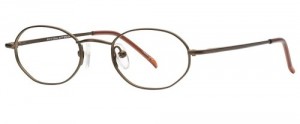Are 1.74 High Index Lenses Right For You?
High index lenses may be a relatively new development in eye-wear technology, but there is a constantly expanding breadth of options on the market today. Because there are so many combinations of lenses, lens styles, and lens treatments available for consumers, you may find yourself wondering what type of lens is the right fit for you. One of the most important things to consider is what type of index your lenses should have – which means first understanding what is meant by the term ‘index’. 
All eyeglasses have what is known as an ‘index of refraction’. The index of refraction is the speed of light in a vacuum divided by the speed of light through a material – in this case, the speed of light through the glass or plastic materials used to create eyeglasses. The higher the index, the more light is refracted and the better a person’s vision can be corrected. Therefore, 1.74 high index lenses bend and refract more light than lenses of a lower index, such as 1.5, 1.6, or 1.67. Lenses with an index of 1.74 are the thinnest and lightest lens available on the market today, but whether or not it’s the kind that you need is another question. Before deciding to shop for 1.74 high index lenses, or for one of a slightly lower index, you should take these factors into account:
Necessity
The first question you should ask yourself when purchasing eye-wear is, ‘What type of lens is best for my eyesight?’. For people with extremely strong prescriptions, an index of 1.74 may be the only way to go. Pairing strong vision correction with light, barely-there lenses is no easy task, but the 1.74 lens accomplishes it. This type of lens provides optimal vision correction while still remaining thin and light like other high index lenses. On the other hand, if you don’t need such a strong prescription, a lens with a slightly lower index may be the better choice for you.
Budget
1.74 high index lenses are the top of the line in eye-wear technology; likewise, they’re also the most expensive type of eye-wear on the market. Though the cost may not be a concern for everybody, it certainly can be an issue for others. If you’re on a tight budget, you may want to consider another lens type besides the 1.74.
Lens Options
1.74 lenses are superior when it comes to thinness and lightness, but there are also some restrictions that come along with them. Certain coatings and treatments don’t work well with these lenses because they may cause color distortions. For example, it can be extremely difficult to find a manufacturer or optical lab that offers Transitions® lenses of a 1.74 index. If Transitions® lenses are something you definitely want to have with your eyeglasses, then you might want to look into some of your other options.
Whatever type of high index lens you choose, you can be sure that your new eyeglasses will be more practical, stylish, and comfortable than the standard index lenses you’re probably used to. 1.74 index lenses might not be the best choice for everybody, but they are the perfect choice for some. If you have a very high prescription and are tired of bulky, cumbersome lenses, you can have the same vision correction and the slimmest, most current styles with 1.74 indexes. If you aren’t interested in Transitions® lenses and simply want the relief of a light, thin pair of eyeglasses, this is the lens for you. Lenses with such a high index may be expensive, but in this case you do get what you pay for. If you have the funds for high-line eyeglasses, this is an investment that you won’t regret.


Leave a Reply
You must be logged in to post a comment.